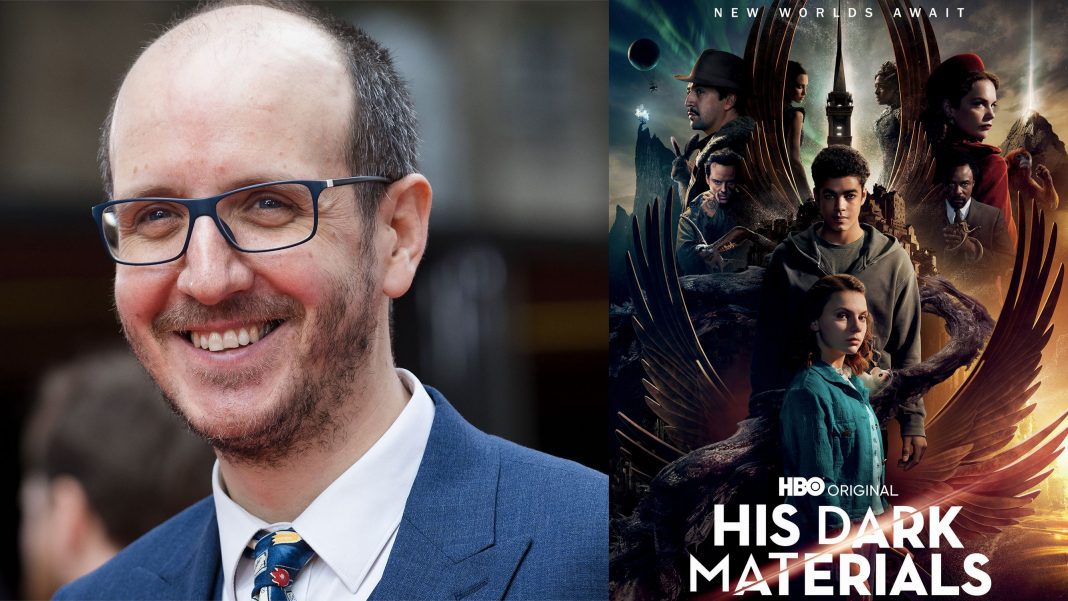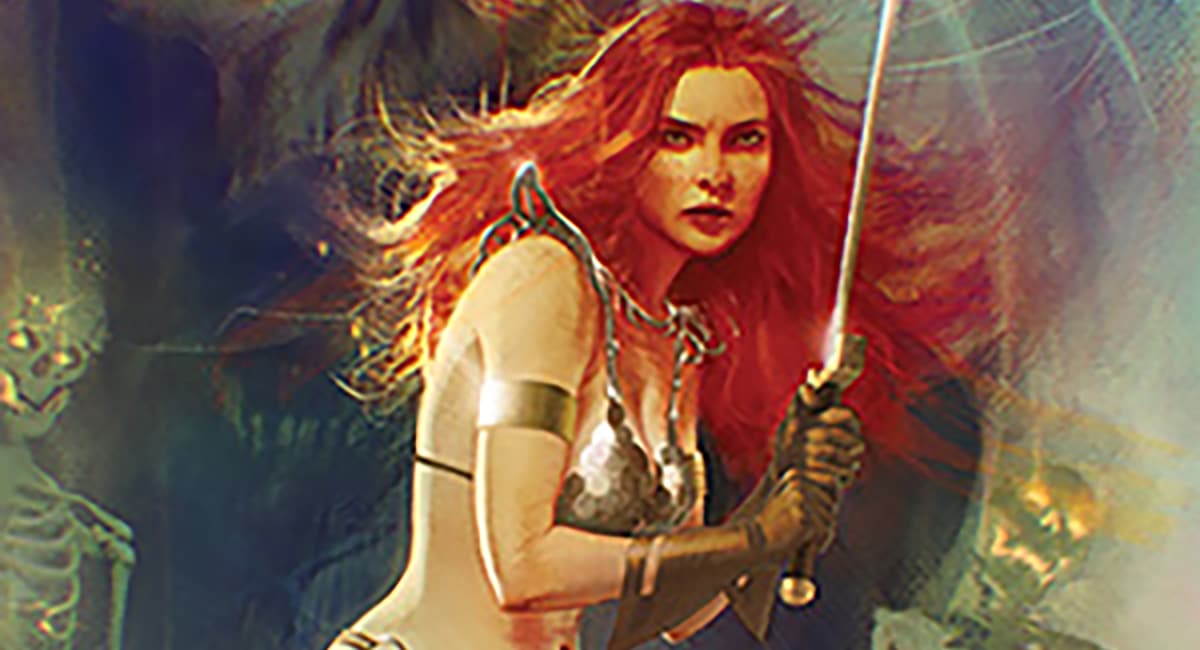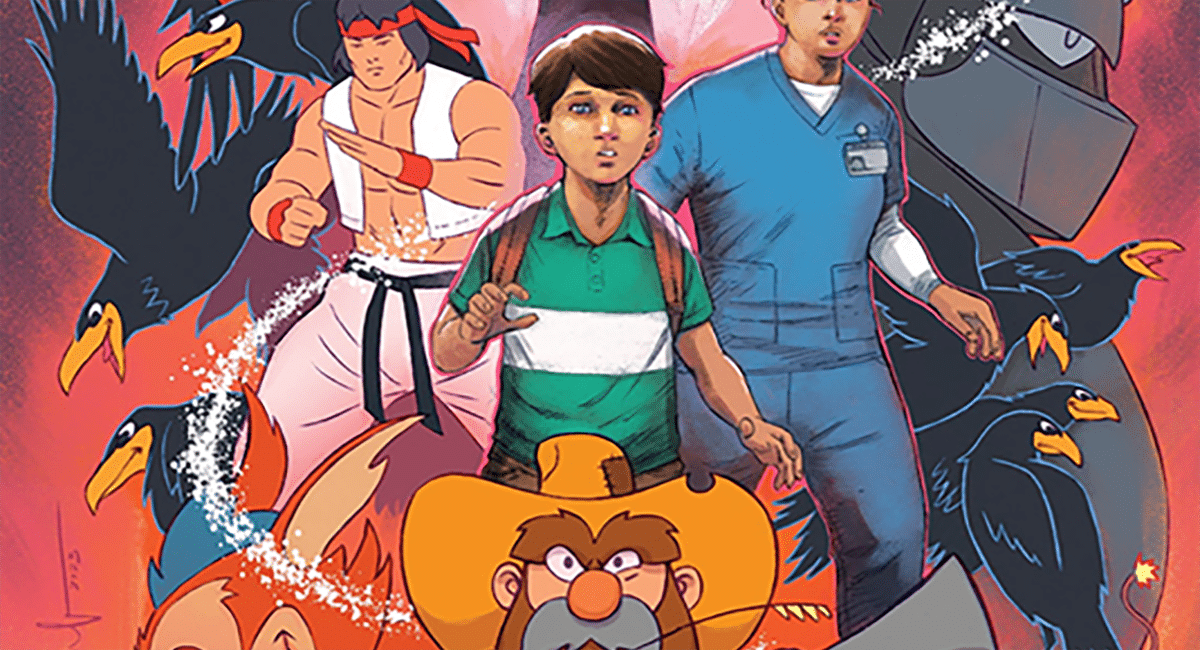With five episodes down (six if you’re lucky enough to be in the UK), we’re just weeks away from the end of Season Two of His Dark Materials. I got to speak with the Writer and Executive Producer of the show, Jack Thorne, to talk about what we’ve seen so far in the series and perhaps get a peek into what comes next.
The season, ending with seven episodes, was filmed and completed save one standalone eighth episode just before the COVID-19 pandemic hit. While we mourne the episode we’ll never get to see, this has been an exciting sophomore season. Including his writing credits on the majority of His Dark Materials episodes, Thorne has most recently written Enola Holmes and penned the stage play for Harry Potter and the Cursed Child.
Therese Lacson: I was curious about some of the challenges that you might have faced when you were approaching Season Two, since a lot of the beginning of The Subtle Knife was put into Season One. Was there ever a concern about not being able to fill the episodes or figuring out how you’re going to structure the story for the second season?
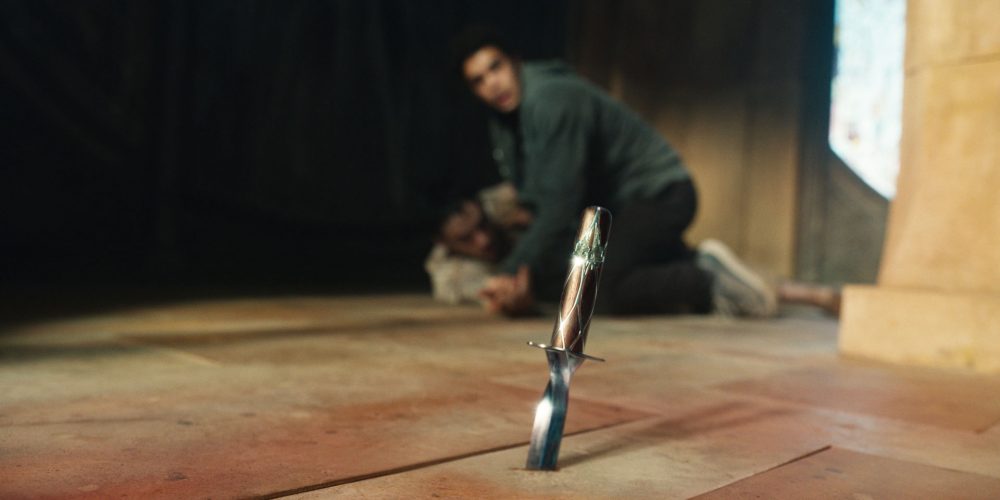
Jack Thorne: The reason why we brought forward that Will story was very simple. We felt like it was really, really important for Will’s character that we tell the story of his life. And it felt like that would be a very, very hard start to a second series. And we’d end up cutting it back, and back, and back until it was five minutes of something, rather than the real complication of how he was living, how he was coping with his mum. Philip Pullman made teenage carer the hero, or one of the two heroes in his book, and as someone that works a lot in the disabled world, it felt very, very important that we tell that story. And so, we brought it forward into Series One to make sure we did it properly.
As to what that meant for Series Two, there was concern about how much incident there was in the book. You know, Series One, you’re constantly moving, you’re constantly on the go. So, when I was dividing up the episodes, you would go, this is Bolvanger, this is Trollesund, and you’d be able to use those bits and pieces. The process started with me writing all the first draft scripts, and then members of the writing team then took those scripts on. But, I did that because I wanted to be sure we could tell the story that the way that I had in my head. And, of course, massive things change from that point on. [It’s] just that thing of going okay, this happens here, this happens here, and most importantly, this is when where Lyra and Will are at emotionally and between each other, and these are the key moments of emotional change. So, and once that happened, it was like, okay, there is enough.
It’s very interesting to be in one place, it’s very interesting to have time for conversation and have time for things that we didn’t quite have the time for in Series One because we had the story always ticking in our background. You know one of the things said when we’re talking about Series One was that the film had to be rushed because there was so much to do. Well, the series had to be rushed too, because there was so much to do. In Series Two, we don’t quite have the same pressure, which is great.
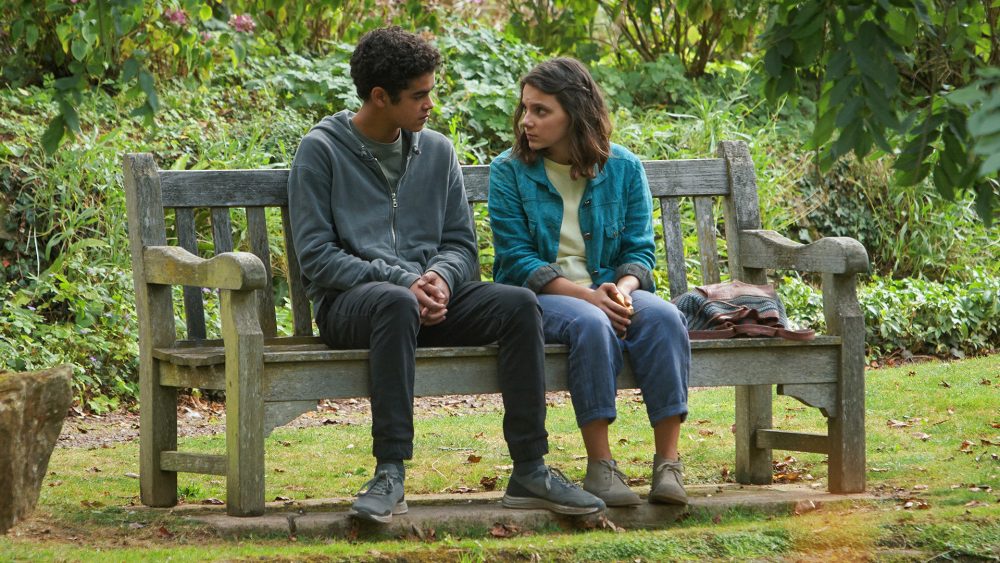
TL: One of the things I really love about the series is Lyra and Will’s relationship. Can you talk a little bit about the process of writing these two characters and seeing them develop throughout the season?
JT: Absolutely. And that was honestly our biggest concern and the thing that we worked on most. It was also the hardest thing when directing the show just making sure everything was in the right place. We [had everything] laid down, you know, what was happening when. And crucially, this moment when Lyra doesn’t do the right thing, and what that means for the pair of them, and how that actually ends up cementing that bond as they are going through this story together. And I think that moment with the two of them… This is a show about trust. and neither of them want to trust each other, but at the same time, they’ve got a yearning to trust each other. And so you’ve got that sort of contradiction, always acting within them, that yearning and then that distrust. Just working out the different phases of that in each episode was a really exciting and really difficult part of the writing process.
TL: In The Subtle Knife, we get more of an introduction into the mythological aspect of the worlds. They can be difficult concepts to grasp, even if you have read the books. Can you talk a little bit about adding new lore and introducing that to an audience when you have things like spectres, and angels, and dust? And can you talk about how you guys decided to introduce it?
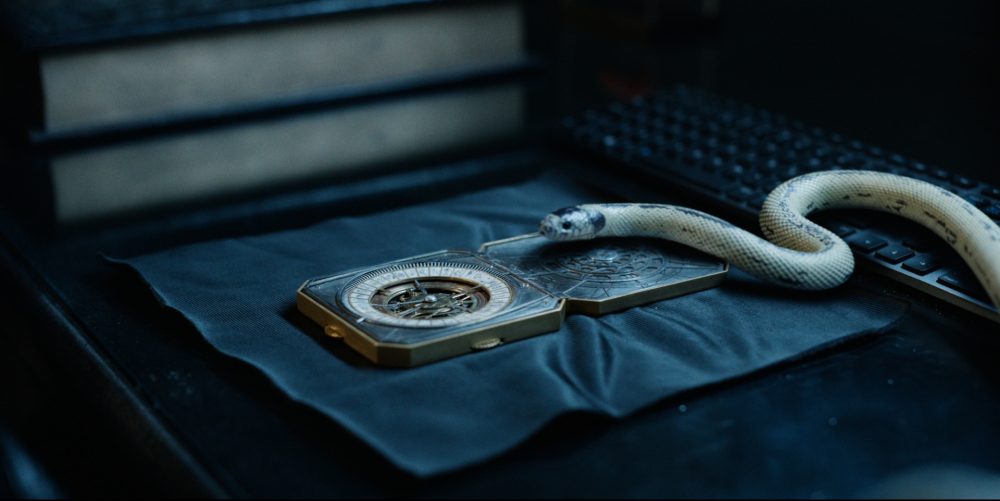
JT: Yeah, Philip, I mean, you need a PhD in order to be some of the stuff that he’s writing about in the depth that he does. And we tried to do that PhD, and the brilliant thing as a reader, I read it and enjoyed being taken along with it. But when you’re adapting it and you’re spending so long looking at these pages, you realized quite how much extraordinary thought there is. You just try and represent that thought as well as you possibly can, and it’s tough. That’s the thing we battled right from the start. I can tell you when we were trying to get financed for this show, walking into meeting after meeting and having to explain these things again and again. It was a very interesting journey for us and sent us a bit mad at times.
And certainly, there were stages, particularly with act one of Series One where I explained way too much because we thought that was the only way we were going to be able to do it. And then gradually you just go, no, trust the questions. Trust the fact that things aren’t going to always be clear to people, but that the audiences like to sit forward. Being an audience is not always about receiving information, it’s dealing with questions, and that can be a really thrilling process. That certainly was my process reading the books, and that’s what we try to replicate on screen, by not always over-explaining, and just trusting that people will go with it and be drawn in by the density of it all.
TL: You have a certain penchant for writing young adults and child characters in a realistic way. I think oftentimes writers can dumb down younger characters or make them seem immature. I love the way you’ve written Lyra and Will and I also really enjoyed Enola in Enola Holmes, which came out this year. How do you approach writing younger characters and what’s your process?
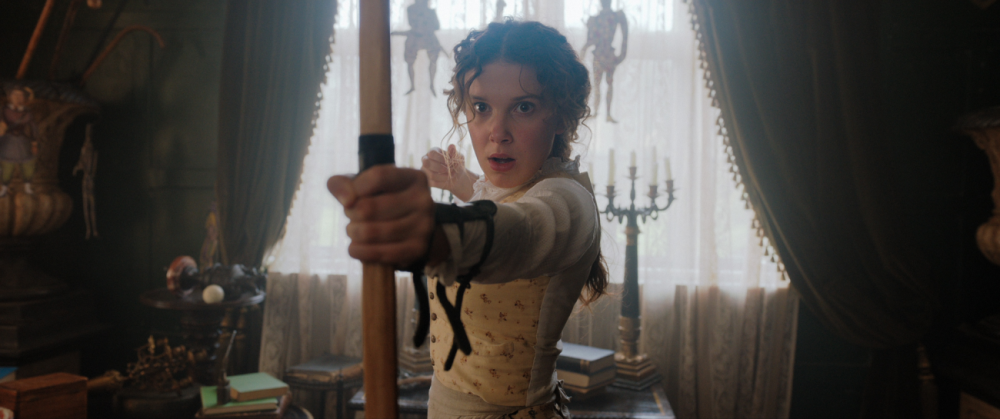
JT: So, my son is called Elliot, and I have the “Be Good” tattooed on my wrist. He was the most important thing that ever happened to me and still is. I love those stories, and I love stories that try and tell what childhood is like. I think if I am any good at it, it’s because I didn’t have many friends as a kid. I spend a lot of time looking at other kids and going, how do you survive? Why do people like you and not like me? And why are you good at that, and I’m terrible at this? And if you are that kid that sits at the back and thinks a lot, and watches people and tries to understand them, I think that does give you some useful skills in life.
I don’t want it for my own kid, I really want him to be happy, and popular, and fit in a way that I didn’t. But I do think that helped me as a writer, and I know who Enola is. And I know who Lyra is. And I know who Will is. And they’re three very different kids, but I recognize them when I read the books, and I just try and repeat that recognition on the page if I possibly can and sometimes I fail and sometimes I get it right.
The thing with Enola was not make her too much like Sherlock. Not making her that kind of intelligent, she has got an analytical mind but it works differently than Sherlock’s. And that she will run into a fire, whereas Sherlock will stay on the outside analyzing how the fire started by looking at things on the ground. They’re two very different types of people and just trying to get that right was the most important thing.
TL: As a huge fan of the way that Mrs. Coulter has been written and portrayed, I’m curious as to what was the approach when it came to writing her character. For me, the character has diverged a little bit from the version of her that I know from the books. She has become more open in her intentions to be a mother to Lyra. Was there a discussion on why you wanted to go in that direction early in the series?
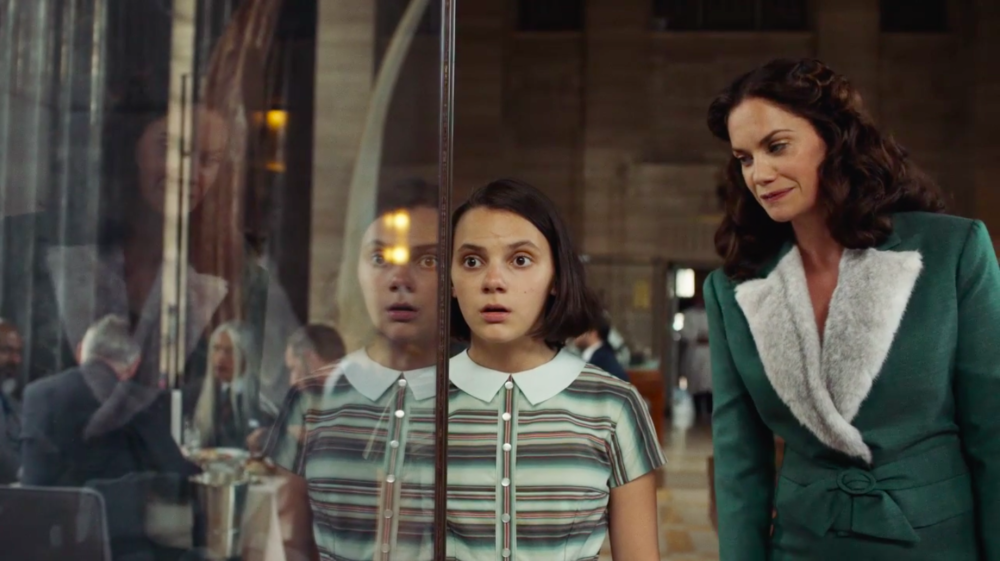
JT: Yeah. It’s interesting you say that. I hope that we walked the line where you can see Mrs. Coulter in two ways: you can see someone that’s intent on pursuing power and you can see someone that’s intent on pursuing Lyra, and that there is a contradiction within her to what she truly wants, and she hasn’t resolved that question. One of the first things I wrote, and I loved the way Ruth Wilson did it, was in Episode Two of Series One, which was when Mrs. Coulter gave Lyra a bath. And in the book, she gave her a bath and you saw her manipulating Lyra. In the show, I wrote a scene of Mrs. Coulter in the bathroom after the bath. Because a woman who knows that this is her daughter and who has been given the access to wash her child’s hair, I couldn’t see how that wouldn’t be transformative. And the way that Ruth played that, in terms of the fragility she found in that moment — it’s a very simple moment — I think really defines the character.
When you get an actor as good as Ruth Wilson, you’re sort of working on two different layers when you’re writing Series Two. You’re writing the Mrs. Coulter from the book, but you’re also writing the part that Ruth Wilson plays, and I think they married together very nicely. But yes, sometimes that takes us a little away from the book. I mean, there’s times when we deliberately stepped away from the book. There is a scene that doesn’t exist in the book [in Episode Three], between two characters, where we use it as an opportunity to explore some backstory for them both, as a way of seeing how each impacts the other. And I hope there’s still ambiguity as to what Mrs. Coulter is really doing because I think there’s ambiguity in her brain.
We’re told as writers always write characters with certainty. I really like uncertainty, and that thing of, when you’re in a meeting with people and they go, what does this character want? And you go, I’m not sure she totally knows. I think that’s true of the human condition, that we don’t know what we want most of the time. And it’s a stupid question to ask what the character wants some of the time. Sometimes it’s really clear what the character wants, and sometimes, people are really clear in what they want, but I think if you look at most people, they don’t always know. They’re confused and they’re working on that confusion, and the great thing about Mrs. Coulter is that she behaves as if she’s got great certainty, but that doesn’t mean that she does have great certainty.
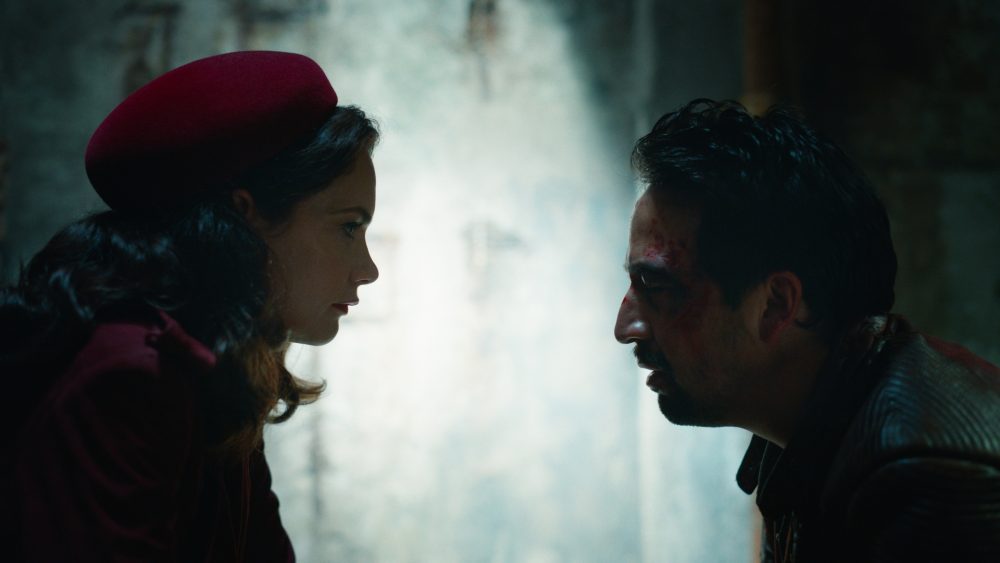
TL: Finally, I was wondering, hoping we get a Series Three, if we were going to see Mulefas? I have always tried to imagine what they would look like visually and how a show or movie would produce them. I don’t know how much you’re at liberty to discuss.
JT: So I’ve been writing Series Three; I’ve written four episodes of Series Three. You know nothing is set in stone, but we’re writing on. And while I’ve been writing, Joel Collins, our production designer, has been drawing. So, I have seen pictures of things, and they’re exciting pictures. We’re in development for what will eventually be on screen. Nothing is decided yet, but I have seen pictures and it’s really interesting.
Although Season Three has yet to be announced, we’re keeping a close eye on the news and can only hope that BBC One and HBO greenlight the production, because I need to see The Amber Spyglass on screen, people!
If you haven’t yet, catch up on His Dark Materials on HBO Max, check out my recaps, and be sure to tune in for the explosive finale on December 28th!


